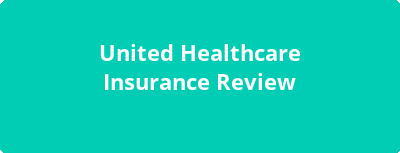
Knowledge of specified medical insurance policies is important for issuers to know in order to pay the mandated PCORI fee the second quarter of each year. This helps lead you to the right number of insured lives, which allows you to figure the amount correctly. Corrected filing can be done, but it is always more desirable to get this done right the first time.
The Affordable Care Act painted a picture that is very broad when it comes to defining a specified medical insurance policy. It is considered any accident or health insurance policy for individuals, families, and groups.
Every individual on the policy is considered a covered member. This number gains relevance when considering a number of various fees that the IRS requires of qualifying policies, which is based on the number of people enrolled.
Find the right health insurance for you today by comparing free quotes with your zip code above!

There are some types of medical insurance coverages and supplements that are exempt from most types of additional fees. HIPAA clarifies what types of insurance coverage is exempt, such as:
Generally, any type of medical insurance that is not a part of the individual, family or group plan is exempt. Itemized coverage that is secondarily added to the primary policy is not considered to be the “policy,” but merely an expansion of benefits.
The Patient-Centered Outcomes Research Institute has a trust fund that was established by Congress in 2010. This trust fund is provided financial resources in three ways:
This trust fund was established as part of the Affordable Care Act to implement ways of helping improve the health care system and availability of quality treatment options through research. They receive 80 percent of the money, with 20 percent going to health and Human Services to administrate and bolster the program.

These nominal fees are a way to help fund the advancement of good and safe medical treatments for patients by bringing together elements of:
The PCORI is not a governmental agency, but rather a non-profit that is there to benefit the public health.
They do receive government funding, but act in the interest of patient care and improving the options available for quality and effective treatments to all sorts of disease and conditions.

The PCORI fee began as a modest $1 addition to the trust fund per covered individual back in 2012. It then moved up to $2 dollars by the year 2013. It now rests at $2.26 per person, annually, with the ability to raise as needed for inflation after October 2017.
The number of covered individuals can be done through a direct head count, taking a snapshot for a best-guess estimate at the time, member months method, or use the state form to find the average number of lives that need to be financially accounted for.

Once you, the issuer, has determined the number of people that the fee applies to, simply calculate the amount needed to be paid by multiplying by the current charge. There are instructions on form 720, which is what is used to file the fee with the IRS.
This form will only have to be done for paying the PCORI fee in the second quarter of the year following the end of the medical insurance policy year the fee is accrued.
You will not have to file this form the first, third, or fourth quarter unless there are other reasons you are required to do quarterly reporting to the IRS. The fee payments have to be mailed by July 31 of the year but are not required to be electronically transferred.

Any expense that is considered necessary and ordinary can be deducted at tax time. The PCORI fee is considered one that is fully tax deductible. Make sure you do not confuse this with the shared responsibility, or excise tax for durable medical products. neither of these fees is tax deductible. You do not want to end up owing unexpected amounts of money to the IRS.
Understanding what a specified medical insurance policy allows you to stay in compliance with calculating all of the necessary fees associated with health reform laws.
Contact a health insurance expert today and find out more about PCORI fees and the best way to maintain an accurate count of covered individuals.
Get free health insurance quotes now and save money; enter your zip code below to get started!





(800) 318-9984 TTY: 711 Mon-Fri, 9AM-7PM ET
HealthInsuranceProviders.com is privately owned and operated by Health Insurance Associates, LLC., a health insurance agency. This website is a non-government asset providing health insurance related resources to consumers in an easy to understand format. The government health insurance website is HealthCare.gov. Submission of your contact information on this website serves as permission for an agent to contact you with further information, including cost and coverage details related to health insurance plans that may be available to you.
We are a health insurance company that acts as a broker for a select variety of health insurance plans and carriers. This site does not contain a complete list of all plans or products available.
Health Insurance Associates, LLC. and the agents who may contact you are not affiliated with or sanctioned by the U.S. Government or the federal Medicare program. We do not offer a complete list of Medicare plans available in your service area and we do not represent all carriers. For a complete listing of plans available to you, call 1-800-MEDICARE (TTY 1-877-486-2048) or visit www.medicare.gov.
This communication’s purpose is insurance solicitation. A licensed insurance agent/producer or insurance company will contact you. Medicare Supplement insurance plans are not linked with or sanctioned by the U.S. government or the federal Medicare program.